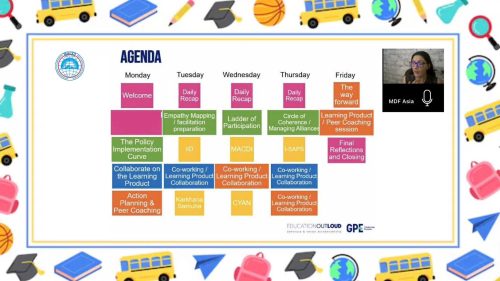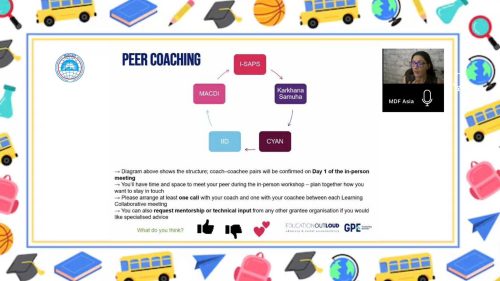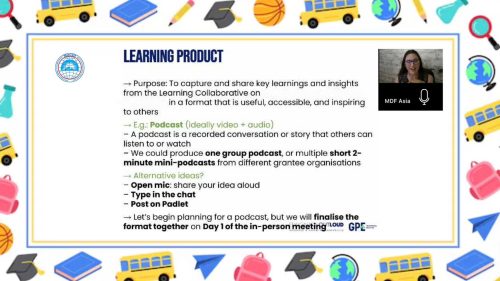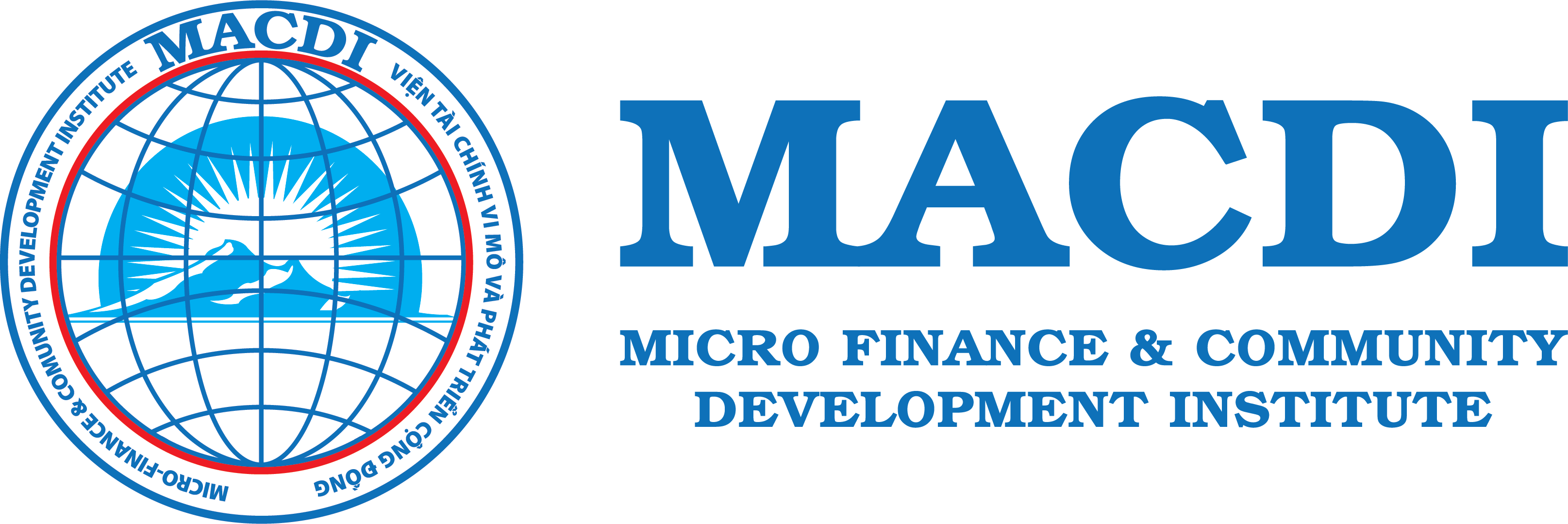PROMOTING SDG 4 – EDUCATION & LEARNING COLLABORATIVE: LEARNING TOGETHER, GROWING TOGETHER!
(Online) On August 28, a special online conference titled “Promoting SDG 4 – Education & Learning Collaborative” brought together leading, passionate organizations. Here, experts jointly created a vibrant learning space, fostering the sharing of invaluable experiences and strong collaboration, all aimed at promoting SDG 4 – education in the education sector, progressively building a more sustainable education system.
Connecting to Learn: Promoting SDG 4 – Education
August 28 marked a significant milestone with the successful online event “Promoting SDG 4 – Education & Learning Collaborative“. This initiative, co-instigated by RMU (represented by Ms. Geeta Verma) and MDF Asia (represented by Ms. Zoe Lawson and Ms. Sanjida Islam), successfully connected coordinators and representatives from various reputable organizations such as MACDI, IID, CYAN, I-SAPS, and Karkhana Samuha.

The “Learning Collaborative on Promoting SDG 4 – Education” is not merely a meeting but a dynamic forum. Its core objective is to create an open environment where OC2 partners can freely share, reflect together, and learn valuable insights from one another regarding the role of promoting SDG 4 (quality education). The event focused on exchanging ideas, introducing practical tools, and especially encouraging a collaborative learning spirit. Through this, the initiative holds great promise for strengthening policy influence via effective joint strategies and successful stories, while also deepening regional connections, building trust, and generating a collective, far-reaching impact.
Goals & Directions: Contributing Together, Achieving Together
Participating parties were encouraged to become architects of their own learning journeys, guided by a clear principle: “You get out what you put in.” While MDF assumed the role of coordinator and supporter, member organizations were regarded as true content experts. The exchange environment was emphasized as open, safe, and completely non-judgmental, with the sole focus on promoting SDG 4. The ultimate goal is to translate acquired knowledge into concrete actions within each organization, and more importantly, to enjoy the learning process itself.
Action Learning and the Power of Peer Coaching
One of the program’s highlights is the philosophy of “Action Learning.” Each organization will set a specific goal related to promoting SDG 4 (quality education). This goal must be formulated based on lessons learned from other organizations, aligned with the project/organization’s mission and objectives, and, notably, capable of being implemented or piloted with existing resources. This is a golden opportunity to transform theory into practice, apply fresh ideas, and generate tangible results, while simultaneously receiving support and constructive challenges from peers through coaching. The aim is not to start a new project but to integrate new knowledge into existing projects.

To optimize the effectiveness of Action Learning, each organization will not only be coached by a peer organization but will also serve as a coach to another. The role of the coach here is not that of a “subject matter expert” imparting knowledge, but rather a genuine “learning partner.” They will pose insightful questions, listen attentively, and support the thinking process, helping to define clear goals, while also providing encouragement and timely feedback.
Transforming Knowledge into “Learning Products”: Spreading the Value of Learning
The objective of “Learning Products” is to compile and share key lessons and deep insights from this Promoting SDG 4 – Education learning collaborative program. These products need to be in a useful, accessible, and inspiring format for the wider community. Podcasts (both video and audio) were suggested as an ideal format, which could be a group podcast or several short (approximately 2-minute) podcasts from different organizations.

Organizations eagerly shared their experiences in creating innovative learning products such as infographics, short videos, and podcasts. Ms. Geeta Verma suggested: “Podcasts can often be a series of small-size sessions, therefore they need to be broken down into smaller, digestible parts.” She also cited an impressive example of an organization that created “1000 30-second messages/videos on Early Childhood Education (ECE) sent to parents via WhatsApp” – a vivid demonstration of effective information dissemination to the target audience.
Featured Sessions & Future Plans
At the conclusion of the meeting, organizations had the opportunity to provide an overview of their dedicated working sessions:
- IID: Focused on advocating for gender-inclusive education policies, and case studies on volunteer engagement.
- KARKHANA SAMUHA: Applied a creative “Design-Thinking” model, built a digital Wiki to document learning sessions, and explored the Local Education Plan licensing framework.
- MACDI: Organized in-depth roundtables on inclusive education, particularly individual education plans with the active participation of children with disabilities, parents, teachers, and school administrators.
- I-SAPS: Focused on utilizing data to generate robust evidence aimed at promoting SDG 4, thereby building strong relationships with the government to improve governance and public service quality.
MDF proposed diverse innovative methods for knowledge sharing, ranging from “chalk talk,” “storytelling circle,” learning from experts, to workshop/matrix mapping exercises. The meeting concluded with a reminder from MDF to thoroughly prepare for upcoming meetings in the Philippines, promising new advancements on this shared journey.
